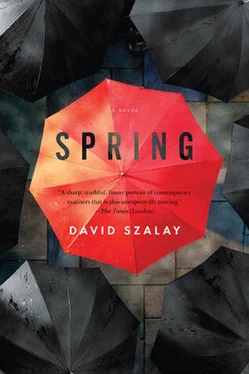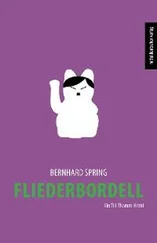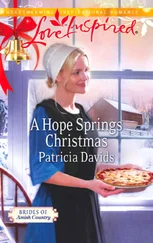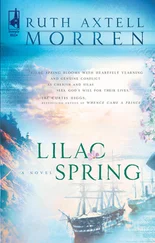Then they went on to Dakar and stayed out late in salsa clubs.
And then on.
And on.
They left the Land Rover in Burkina Faso and flew back to London in April.
He had opened a different sort of world to her—it wasn’t anything he did so much as something in what he was —a world of immediate feelings; and with them the sometimes troubling sense that they were the only thing that was of any value, that finally they were what life was.
Later that year they were married. If there was to be a wedding he wanted it low-key, which it was. A London registry office on a Saturday afternoon. His mother, over from Saskatchewan. Her parents. A Swedish aunt. A few friends.
His photos were not a huge success. He had exhibited them over the summer, and sold a few prints, but it was obvious that he was not going to be able to make a living from them, and he had to look for other sorts of photographic work. (As for her, she was still working in the hotel—she had been working there for more than two and a half years, and was now a shift manager.) Fraser was depressed that his attempt to be Ansel Adams had failed. He said he was too worn out for papping. That was a ‘young man’s job’. They didn’t have much money. He sold the place in Battersea and they took out a joint mortgage for a flat on Packington Street in Islington.
She had always imagined a house in some nice white-stuccoed nook of north London. Trees in the street. Family Christmases. What she had was not quite what she had imagined, but Packington Street passed for a white-stuccoed nook, just about. Fraser said it was the worst possible time. They were just scraping along as it was. They needed her income. And there was no hurry—she was only twenty-nine. Every second weekend his daughters stayed with them. He picked them up from school on Friday, and his wife picked them up from Packington Street on Sunday afternoon. She stayed outside, usually sitting in the car—except for that once on the phone, she and Katherine had never spoken.
He started finding more work. He seemed to have found a source of more lucrative product work, high-street fashion stuff. He had shots of posh parties in Tatler —Lord Something So-and-so’s twenty-first, the bar mitzvah of a north-London billionaire’s son. He was often out late on these jobs, and was sometimes away overnight.
She was very strict with herself. He himself had once told her, while he was still living in Sevenoaks, that even if he did leave his wife, she would never trust him. Not the way things had started. She knew from her own experience what he was like. She often thought of those words. Her memory of him saying them, of the self-satisfied melancholy smile on his tremendous face was precise. They had made a powerful impression on her. However, she insisted on trusting him. She had to trust him. What was the point otherwise? To freely enter into this situation and then spend a lot of time not trusting him —that would be insane. She had known what she was doing, and in doing it she had taken a decision to trust him. So she did. She trusted him.
*
When she leaves the hotel at the end of her shift it is nearly dark outside, the western sky over the park still just streaked with wet blue light—she sees it through the trees—as it was on the afternoon that she first spoke to Fraser, over four years ago. She walks quickly to the tube station. When she saw him on Sunday he did not look well. He looked surprisingly old and paunchy. He looked out of shape. Having exchanged a few words with Summer, he stood there waiting, staring at the floor, while she finished her phone call—she was trying to hide the fact that her heart was palpitating from him and also from James on the other end of the line. When she had finished with James she snapped her phone shut and said, ‘Hello.’
‘Hello,’ he said.
She stood up. ‘Do you want to get a drink then?’
‘Okay.’ He shrugged, seemed unenthusiastic.
‘That’s what you said you wanted,’ she said. ‘You said you wanted to have a drink.’ That was what he had said. He smiled—the smile wasn’t quite there. ‘Sure. Let’s do that.’
Watching her put on her coat, he said, ‘You look nice.’
She ignored that—though her heart seemed to hit a pothole—and they left (she shouted up to Summer that she wouldn’t be long) and walked in silence to the Old Queen’s Head, where they often used to go for quiet drinks on Sunday nights…
She stands on a fully freighted escalator at King’s Cross, one of thousands of people in motion, tens of thousands. The formiche di Londra, Carlo calls them. And one of the formiche, lost in her thoughts, she transfers from the Piccadilly line to the Northern for the single stop to Angel.
The flat is empty and unlit. Summer is out. She will probably not be home tonight.
She has a long bath, and opens a pack of supermarket tortellini, and phones her mother and tells her that she has seen Fraser and wishes she hadn’t. Then, in her turquoise kimono, with her hair in a towel, she watches television for an hour.
Lying in bed, she opens the poetry anthology that lives on the night-table and, as she sometimes does last thing at night, takes the first poem she sees. She is pleased that tonight it is a short one.
Ah! Sunflower, weary of time,
Who countest the steps of the sun,
Seeking after that sweet golden clime
Where the traveller’s journey is done;
Where the youth pined away with desire,
And the pale virgin shrouded in snow,
Arise from their graves and aspire;
Where my sunflower wishes to go.
She switches off the light. When she is half-asleep, however, she hears her phone, muffled somewhere in the flat. She does not move. Sleepily she wonders whether it is James, or Fraser, or someone else.
Simon Miller wakes at four. Though it will not be light for more than two hours, he has things to see to. Leaving Mrs Miller to sleep in—she were a lazy so-and-so—he pulls on his jeans and prowls downstairs. In the kitchen he switches on the overhead light and, still squinting painfully, sets matchflame to Marlboro Red. Then he starts to make his tea. He has five runners entered at Fontwell Park this afternoon, a large number for a small stable like his—he has had to hire an extra horse transport—and there are preparations to see to. He opens the yard door and standing shirtless under the lintel puts on the floodlight. Floodlight were right. The fockin yard is under water. With filthy weather like this down in Sussex, it’s a short odds-on shot, he thinks, that Fontwell will be off. He’ll still have to pay for the horse transport. He’ll still have to see to all the paperwork that sending five horses to the track involves. There’s an inspection scheduled for later, until then he just has to assume the fockin thing is on.
When the light struggles up the rain has stopped and the old farmhouse looks sullen in its hollow. The stand of nettles shivers in the wind. In the tackroom the neon lights are on. The lads and lasses are up and taking out the string.
‘What you reckon, Piers?’ Simon says, sunk up to his ankles in the ooze of the yard mud, so that his thick legs seem to thrust from it like young trees. ‘Will it be on? What do you think?’
And patient, pale Piers does think—he thinks as if he is trying to work it out, as if it was possible to work it out logically. From his vantage point in the high saddle—he is on Mr President, smoking a cigarette while he waits for the others—he looks up at the laden sky. He looks at the flat ploughed fields. ‘Don’t know,’ he says finally.
Читать дальше












